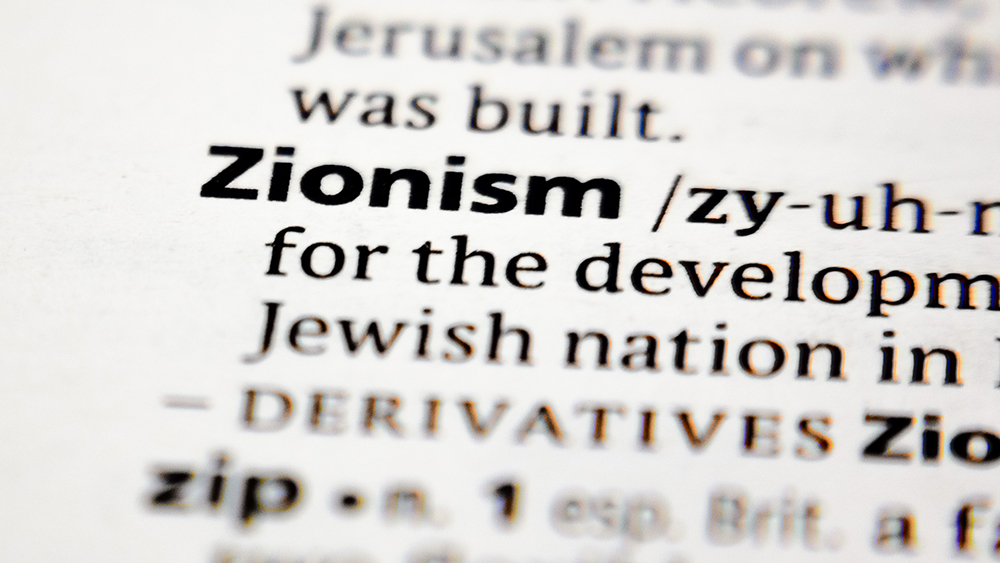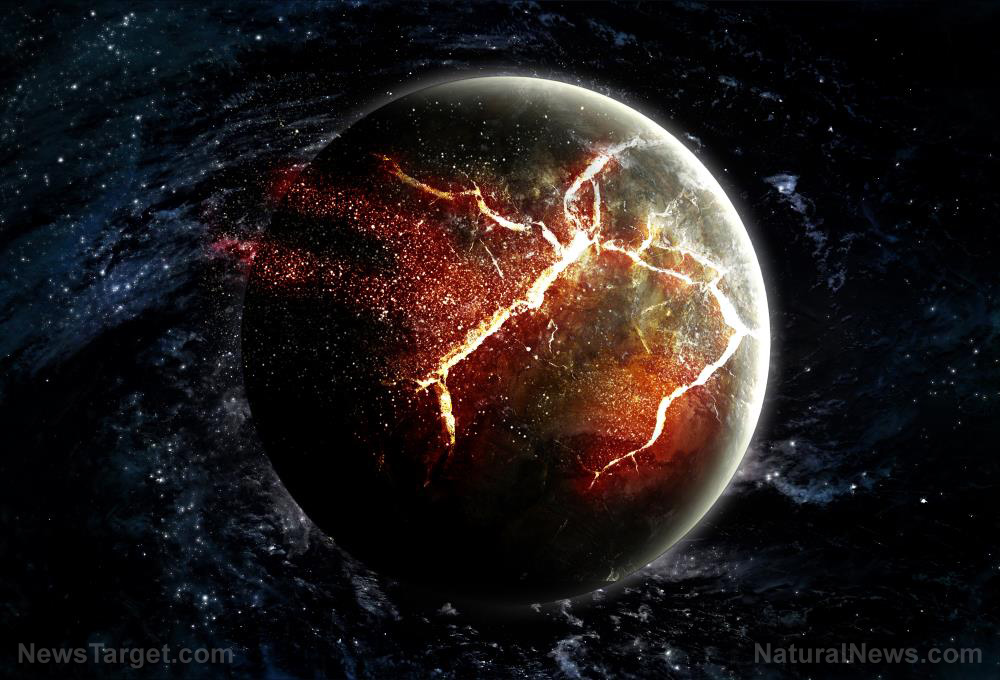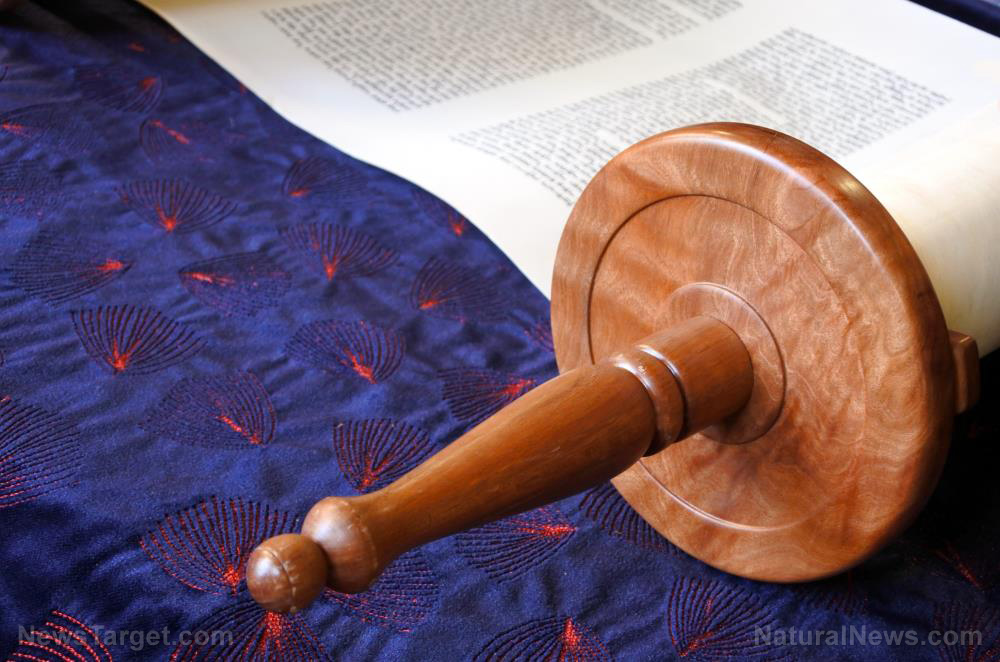Shlomo Avineri looks at the intellectual origins of Zionism in “The Making of Modern Zionism”
04/08/2025 / By Kevin Hughes

- Zionism was shaped by a deep spiritual connection to the Land of Israel, coexisting with centuries of practical detachment until the 19th century, when it evolved into an active political movement.
- The shift from passive longing to active nationalism was driven by broader European changes—Emancipation, secularization and rising nationalism—not just anti-Semitism.
- Historian Shlomo Avineri highlights thinkers like Nachman Krochmal (blending Jewish tradition with Hegelian philosophy), Heinrich Graetz (emphasizing Jewish historical continuity) and Moses Hess (advocating a socialist Jewish state in Palestine) in his book “The Making of Modern Zionism”.
- Theodor Herzl’s vision of a Jewish state combined refuge with social justice, while figures like Max Nordau and Ahad Ha’am focused on cultural and spiritual renewal within Zionism.
- Zionism emerged as a multifaceted response to modernity, integrating historical, cultural and political influences to redefine Jewish identity and self-determination.
In the annals of history, few movements have been as deeply rooted in both emotion and pragmatism as Zionism, the ideological force that led to the establishment of the Jewish State. In his seminal work, “The Making of Modern Zionism: The Intellectual Origins of the Jewish State,” historian Shlomo Avineri embarks on a profound exploration of the complex and often paradoxical forces that shaped this transformative movement.
His analysis reveals a rich tapestry of intellectual currents, historical events and cultural shifts that culminated in the birth of a modern nation-state. At the heart of Avineri’s narrative is the duality that defines Zionism: a profound, millennia-old connection to the Land of Israel, coexisting with centuries of practical distance.
For generations, Jews maintained a deep spiritual bond with their ancestral homeland, expressed through prayer and tradition. Yet, this emotional attachment did not translate into widespread emigration or practical efforts to return to Palestine. The annual mourning for Jerusalem’s destruction and the prayers for deliverance were not accompanied by a mass movement to reclaim the land.
This paradox began to shift in the 19th century with the emergence of Zionism as an organized political movement. Avineri argues that this transformation was revolutionary, marking a fundamental change in how Jews related to their historical connection with Israel.
The 19th century was a period of unprecedented change for European Jewry. The French Revolution and the subsequent Emancipation granted Jews equality before the law and opened doors to education, professions and society. However, this newfound freedom came with its own set of challenges. The Enlightenment and secularization altered the way Jews perceived themselves and how they were perceived by non-Jewish communities. No longer defined primarily by their religious beliefs, Jews faced a new dilemma of identity in a world increasingly defined by nationalism, ethnicity and cultural identity.
Avineri delves into the intellectual currents that contributed to the rise of Zionism, examining the works of key figures who shaped the movement. One such figure is Nachman Krochmal, whose work attempted to reconcile Jewish identity with the dominant European philosophical traditions of the 19th century. Krochmal’s “The Guide to the Perplexed of Our Time” is a fascinating blend of Jewish tradition and Hegelian philosophy, offering a unique perspective on the survival of the Jewish people and their universal contribution to world history.
Another pivotal figure is Heinrich Graetz, whose “History of the Jews” challenged traditional views of Judaism and emphasized the historical continuity of the Jewish people. Graetz’s work played a crucial role in shaping the view of Jews as a nation with a story unfolding in time and place, countering the Orthodox view of Judaism as an unchanging religious structure and the Reform movement’s conception of Judaism as a mere moral and spiritual vision.
Moses Hess, with his book “Rome and Jerusalem,” called for a solution to the Jewish problem through the establishment of a Jewish socialist commonwealth in Palestine. Hess’ work is a unique synthesis of socialism and Jewish nationalism, offering a vision of a society that combines national particularity with a universal vision.
Theodor Herzl, often seen as the father of modern political Zionism, is another central figure in Avineri’s analysis. Herzl’s “The Jewish State” and “Altneuland” are visionary works that describe a society that would not only be a refuge for Jews but also a model of social justice, drawing on the socialist utopian literature of the 19th century.
Avineri also explores the contributions of Max Nordau and Asher Ginsberg (Ahad Ha’am), who emphasized the cultural and spiritual dimensions of Jewish nationalism. Nordau’s critique of the impact of Emancipation on Jewish life and Ahad Ha’am’s call for a focus on cultural and spiritual development highlight the diversity of thought within the Zionist movement.
Watch this video about Shlomo Avineri’s book “The Making of Modern Zionism: The Intellectual Origins of the Jewish State.”
This video is from the BrightLearn channel on Brighteon.com.
Sources include:
Submit a correction >>
Tagged Under:
Ahad Ha'am, anti-Semitism, Asher Ginsberg, Emancipation, enlightenment, Europe, french revolution, Heinrich Graetz, Israel, Jerusalem, Jewish state, Jews, Judaism, Max Nordau, Moses Hess, Nachman Krochmal, Palestine, Shlomo Avineri, The Making of Modern Zionism, Theodor Herzl, zionism
This article may contain statements that reflect the opinion of the author
RECENT NEWS & ARTICLES
COPYRIGHT © 2017 ANTI CHRIST NEWS



















